STATEHOUSE REPORT | ISSUE 23.48 | Nov. 29, 2024
BIG STORY: S.C. higher ed faces demographic challenges
MORE NEWS: S.C. House using AI on ‘outdated’ regulations
LOWCOUNTRY, Ariail: Shrimping forecast
BRACK: Pandering to fear is not the American way
SPOTLIGHT: S.C. Farm Bureau
MY TURN, Rutledge: Early voting location at church causes discomfort
FEEDBACK: Send us your thoughts
S.C. higher ed faces demographic challenges
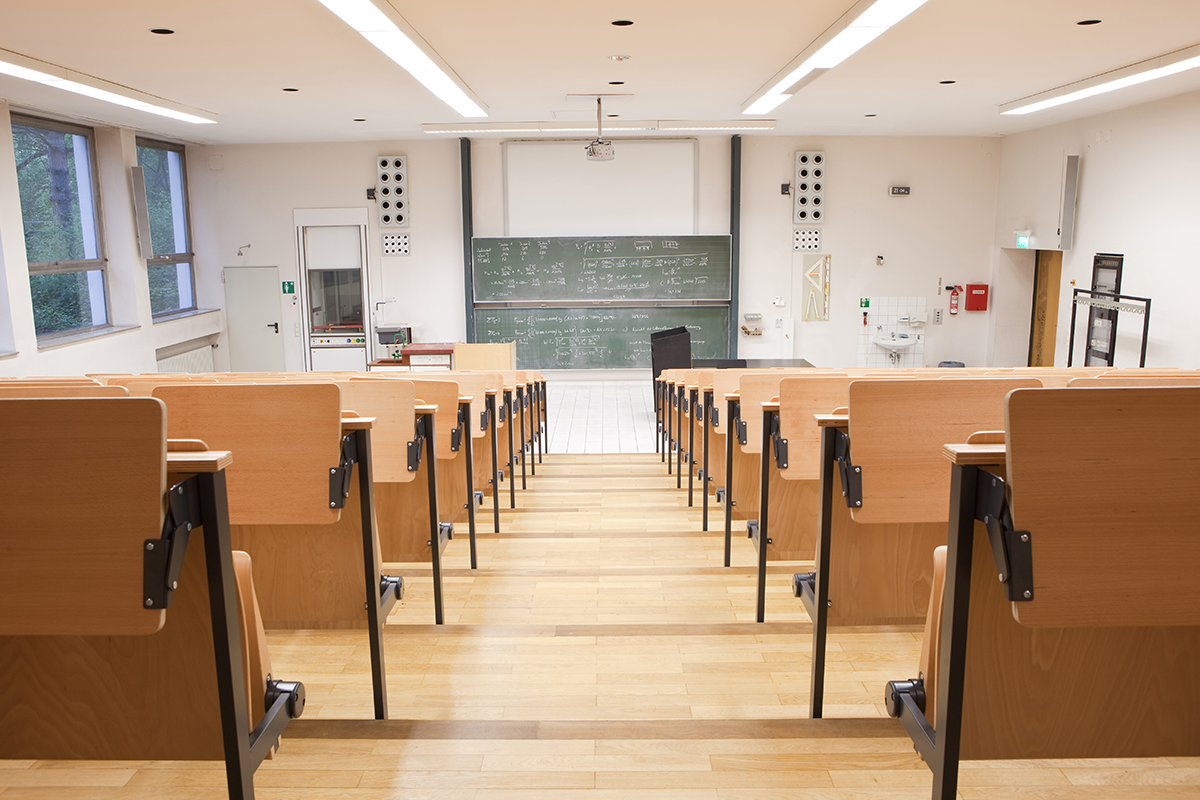
By Jack O’Toole, Capitol bureau | With warm weather and a booming economy attracting young families and aspiring college freshmen in record numbers, South Carolina might seem immune from the sweeping demographic and social challenges facing American higher education.
But even with those advantages, policymakers say the Palmetto State must start preparing now for a future with fewer college-aged kids, a graying workforce and increased skepticism about the value of pricey post-secondary degrees.
Leading the charge to bolster higher education to date has been S.C. Gov. Henry McMaster, who gently chided the state legislature over the summer for its refusal to fund a $3 million top-to-bottom review of S.C. higher education in the 2024-25 state budget.
“Despite the high demand for skills, training and knowledge, many colleges across the nation are seeing declining enrollments,” McMaster said in a July 3 letter to legislators. “I am hopeful you will reconsider next year. The time has come to evaluate whether the courses, degrees, and certificates that are offered at our public colleges and universities are meeting our state’s future workforce needs.”
To prepare, experts say S.C. must address a series of short-, medium- and long-term systemic challenges.
A looming ‘enrollment cliff’
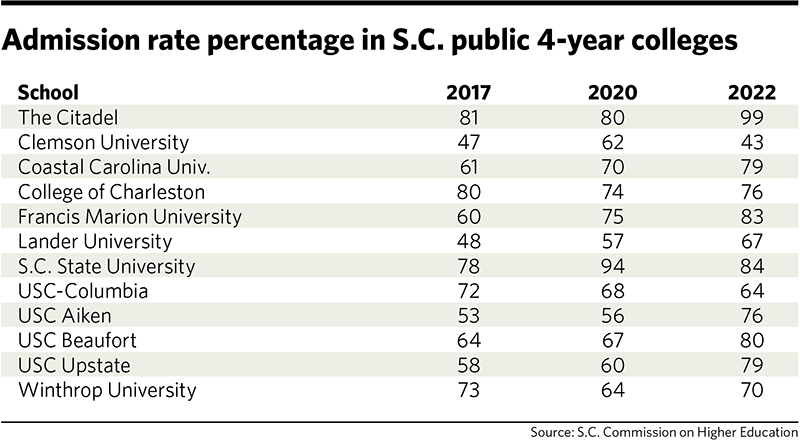 More than 500 colleges and universities across the nation have closed or merged over the past 10 years as the total number of students fell by 10%, or 2 million students, The Wall Street Journal reported in August. And with the nation’s high school population set to begin a long period of decline in 2025 due to declining birth rates, even more could shutter in the decade ahead.
More than 500 colleges and universities across the nation have closed or merged over the past 10 years as the total number of students fell by 10%, or 2 million students, The Wall Street Journal reported in August. And with the nation’s high school population set to begin a long period of decline in 2025 due to declining birth rates, even more could shutter in the decade ahead.
The good news for prospective students is that falling enrollments are making it easier to get into competitive colleges, according to a recent evaluation by the American Enterprise Institute (AEI).
“While college enrollment surged during the 2010s, giving schools more leeway to reject applicants, the pendulum has now swung back,” AEI Fellow Preston Cooper noted last month. “Colleges are competing for a smaller pool of potential students, and as a result, those who do apply enjoy higher odds of admission.”
Despite rising application numbers and stable enrollments to date, South Carolina’s has seen the same trend, with overall acceptance rates rising from 55% to 65% at many state-supported colleges and universities since 2017, according to the S.C. Commission on Higher Education (CHE).
But as CHE President Jeff Perez observed in a Nov. 22 interview with the City Paper, that number is “highly variable” across the system, with schools like Clemson, the University of South Carolina in Columbia and the College of Charleston actually accepting a lower percentage of applicants over the same period of time.
Nevertheless, experts say South Carolina colleges are enjoying a temporary reprieve, not a permanent amnesty, from the larger American problem of declining birth rates and falling enrollments.
And the solutions, they argue, are clear: consolidation of existing state schools and a reduction in the number of programs offered – two of the policy prescriptions McMaster wants legislators to study.
Questions of governance
Some call South Carolina’s system of higher education governance decentralized. Others call it a collection of fiefdoms, with 33 largely autonomous public institutions competing for resources and making decisions that work for them but perhaps not for the larger system.
At a press conference earlier this year, McMaster seemed to go out of his way to raise this issue of governance, noting that South Carolina’s neighbor to the north manages its higher education system quite differently.
“States like North Carolina, for example, have a board that’s not like our Commission on Higher Education,” McMaster said. “It’s set up sort of the same, but they have the authority to change things.”
McMaster isn’t the first South Carolina governor to argue for more centralized authority over the system. In fact, former Gov. Mark Sanford called for an independent Board of Regents to oversee the state’s colleges and universities in the early 2000s, but the proposal died in the state legislature.
And while critics argue stronger central governance will be necessary to meet the coming demographic challenges, longtime Statehouse observers say the idea is likely to die again due to a mix of bureaucratic inertia and the influence of powerful university interests in the legislature.
Workforce development
Long a focus of South Carolina educational policy, workforce development took on an even larger future role with this year’s release of the Unified State Plan for Education and Workforce Development (USP). Developed in response to 2023’s Education and Workforce Development Act, the 44-page plan identifies more than 70 priority occupations that South Carolinians will need post-secondary degrees to fill in the years ahead.
“Knowledge is the fuel that powers South Carolina’s economic engine,” Perez said when the report was released. “Through the USP we will be part of this important undertaking to ensure South Carolina citizens can receive the post-secondary preparation that will equip them for success in whatever career they choose.”
McMaster, who typically frames educational issues in terms of jobs, lauded the report as an important first step.
“This plan will bridge the gaps between education, workforce, and economic development, preparing our citizens for the multitude of new jobs being created statewide,” McMaster said.
The question, according to experts, is whether the current system, given its long-term demographic and governance issues, can make even the best-designed plans work.
The state legislature is expected to again consider the governor’s request for a top-to-bottom review of higher education when it next takes up the state budget in March of 2025.
- Have a comment? Send to: feedback@statehousereport.com.
S.C. House using AI on ‘outdated’ regulations

By Jack O’Toole, Capitol bureau | The S.C. House of Representatives is using a customized version of Google’s Gemini artificial intelligence tool to identify and potentially eliminate “outdated” rules buried in the state’s code of regulations, House leaders announced this week.
“South Carolina is leading the way with AI,” House Speaker Murrell Smith (R-Sumter) said in a Nov. 27 social media post. “Chairman @JeffBradleyhhi and the AI Committee are partnering with Google to declutter outdated regulations, setting an example for the nation.”
According to AI Committee Chairman Jeff Bradley (R-Beaufort), the initiative began in September, when he raised the idea with Google executives at a company-hosted event for government leaders in Chicago.
“They’re taking our Code of Regulations and they’re using that as a large language model,” Bradley told Pluribus News on Nov. 22. “We’re looking to use this to identify obsolete, duplicative, confusing regulations … [and then] get rid of them or change them.”
Fellow GOP committee member Sylleste Davis (R-Berkeley) lauded the effort, calling it “a great use of AI” that “will lead to a streamlining of regulations.”
But consistent with Beaufort GOP Sen. Tom Davis’s recent observation that dominant majorities of the kind Republicans currently enjoy in the state legislature inevitably split into factions, S.C. Freedom Caucus Chair Jordan Pace (R-Berkeley) quickly attacked the idea from the right.
“We don’t need to ‘declutter’ the regulatory state,” Pace wrote in response to Smith on X. “We need to attack it with chainsaws not scalpels. Redundancies aren’t suppressing small businesses, the idea of the regulatory state is responsible for that. They don’t keep us safe, they keep us poor.”
The S.C. House will take up regulatory reform when the 2025-26 session kicks off in January.
In other recent news
![]() S.C. House GOP Leaders promising historic income tax cut in 2025. The still-unanswered question? How will they pay for it?
S.C. House GOP Leaders promising historic income tax cut in 2025. The still-unanswered question? How will they pay for it?
Inmate who killed 2 S.C. police officers can’t be legally executed, attorneys say. Attorneys for Steven Bixby, 57, are asking the S.C. Supreme Court to halt setting an execution date while an Abbeville court determines whether he’s competent to be put to death. Bixby was convicted of killing two S.C. police officers in 2007.
USDA looks into reported monkey deaths at Alpha Genesis. The U.S. Department of Agriculture said it is reviewing “detailed allegations” from an animal rights group against the Alpha Genesis monkey breeding farm in Yemassee regarding the possible deaths of 18 endangered long-tailed macaques when a heater malfunctioned.
S.C. teacher vacancies decrease, but still above pre-pandemic levels. The number of vacant teaching positions in South Carolina’s K-12 schools has dropped, though it remains far above the number of openings reported before the COVID-19 pandemic, according to an annual report released Monday.
Clemson breaks ground on state’s first vet school. South Carolina will have something that it and 22 states haven’t had — a veterinary school. Lack of one has forced S.C. students to go out of state for years.
Charleston’s Bessent tapped to be Treasury secretary. Charleston hedge fund investor Scott Bessent has been tapped to be President-elect Donald Trump’s Treasury secretary. This story looks at how Bessent morphed from being a Democratic donor to a GOP cabinet pick.
Shrimping forecast
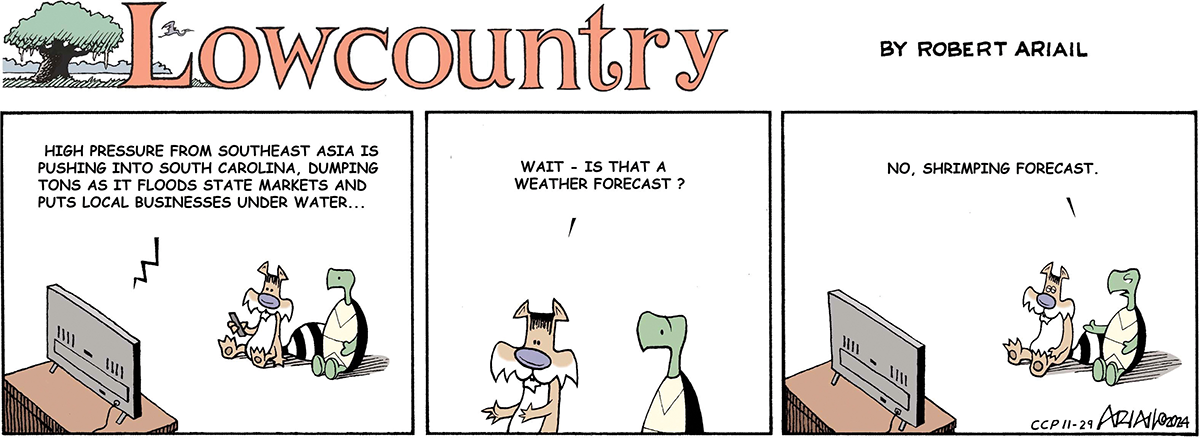
Nationally award-winning cartoonist Robert Ariail always has an interesting take. This week, he takes a look at forecasting.
- What do you think … love it or hate it? Did he go too far, or not far enough? Send your thoughts to feedback@statehousereport.com.
Pandering to fear is not the American way

EDITOR’S NOTE: This is a lightly updated Thanksgiving column from 2015. It still rings eerily true. Have a good holiday season.
Commentary by Andy Brack | Recall Thanksgiving afternoon as you watched football and digested turkey after giving much thanks for your freedom, blessings and family.
 Imagine hearing the doorbell as you’re dozing. At the door is a young brown woman, heavy with child. She’s wearing a scarf on her head. On the street, you see a beat-up car with a man inside.
Imagine hearing the doorbell as you’re dozing. At the door is a young brown woman, heavy with child. She’s wearing a scarf on her head. On the street, you see a beat-up car with a man inside.
The woman holds her belly. “Sir, my husband, Jose, and I have no place to stay tonight. We’re new to this country and haven’t been able to find steady work. We’re cold. We’re hungry. But we’re not any trouble. We’re legal — we’re refugees. Can you help us tonight?”
You’re perplexed, torn, conflicted. What should you do? Like most Americans, you’re generous. You’re kind. But this? Somebody else should deal with it, right? What do you know about these people, this woman who claims her name is Maria?
America, a nation made strong by immigrants, is once again confronting nasty, Joe McCarthy-like debates about immigration — about who should be in the country and who shouldn’t.
Most Americans seem to forget that in just about everyone’s background is an immigrant like Jose or Maria who turned up on these shores to start a better or different life, some as immigrants, some as slaves, and others as refugees from war and violence. With each wave of new arrivals, some Americans were frightened at first, worried by the backgrounds, baggage and competition that the newcomers brought. But over time, each new wave became part of the fabric of the nation, adding new strength to the diversity of people called Americans.
With just about every family’s immigrant past, it’s unsettling how quickly so many forget and fall into xenophobia, the fear or irrational dislike of foreigners. Case in point: [Former] Gov. Nikki Haley, a brown woman and daughter of Sikh immigrants who [in 2015] joined 29 other governors — all but one Republican — in saying Syrian refugees shouldn’t be resettled in the Palmetto State.
Really? The overwhelming majority of refugees, all of whom go through extensive background checks, are women and children. Where’s your Christian charity? Where’s your leadership? You could be a spokesman to highlight how America is the land of opportunity for all. Instead, you conveniently join the crowd of pandering politicians and seem to forget how your family was welcomed into the United States.
Meanwhile, GOP presidential candidates turn up the heat with vitriol and rhetoric, inflaming feelings of fear. Chief fearmonger is billionaire Donald Trump, who talks about maintaining databases of Muslims and making them wear identification, the same kind of labeling done in Nazi Germany to Jews, gays and Communists.
Ladies and gentlemen, this isn’t the America in which I grew up. We’re better than the political nonsense that is fueling the airwaves and social media. The Greatest Generation toiled and fought to preserve freedom for all, understanding what one president said: “The only thing to fear is fear itself.”
[Former] Washington Gov. Jay Inslee wrote that his state would continue to welcome refugees because it’s part of what being American is:
“The American character is being tested. Will we hew to our long tradition of being a beacon of hope for those chased from their homelands? I have always believed that the United States is a place of refuge for those escaping persecution, starvation or other horrors that thankfully most in America will never experience.”
Since 2002 [to 2015], South Carolina accepted 1,813 refugees from 30 countries, according to federal sources. More than a third (680) were from Burma. Iraq was the mother country to 249 and Ukraine to 205. One refugee was from Syria.
Fear, as Inslee notes, is a powerful thing. If we succumb to it, aren’t we letting the terrorists win? Aren’t we letting them change our lives of freedom? We shouldn’t blame people running from terrorists into the refuge of America or France or Sweden for what the terrorists are doing. Instead, we, like other free countries, should welcome them so they can blossom from victims into capitalists.
Andy Brack is editor and publisher of Statehouse Report and the Charleston City Paper. Have a comment? Send to: feedback@charlestoncitypaper.com.
S.C. Farm Bureau
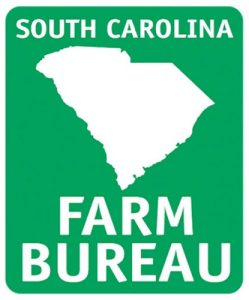 Statehouse Report is provided for free to thousands of subscribers thanks to the generosity of our underwriters. Today we shine a spotlight on our newest underwriter, S.C. Farm Bureau. It is a grassroots, non-profit organization that celebrates and supports family farmers, locally-grown food and rural lands through legislative advocacy, education and community outreach.
Statehouse Report is provided for free to thousands of subscribers thanks to the generosity of our underwriters. Today we shine a spotlight on our newest underwriter, S.C. Farm Bureau. It is a grassroots, non-profit organization that celebrates and supports family farmers, locally-grown food and rural lands through legislative advocacy, education and community outreach.
S.C. Farm Bureau’s alliance of nearly 100,000 members includes everyone from foodies and fishermen to lawyers, restaurateurs, entrepreneurs, community leaders, and of course, farmers. By connecting farmers to the larger community, the organization cultivates understanding about agriculture’s importance to our local economies. The S.C. Farm Bureau explains its mission: “We deepen our collective knowledge of who, where and how food grows. We empower people to make informed choices. We grow mutually-beneficial relationships. And, we ensure the future of the family farms, locally-grown food and the rural South Carolina lands we love.”
- To learn more about S.C. Farm Bureau’s programs, click here.
- To view media and publications, click here
- For policy and legislation, click here.
Rutledge: Early voting location at church causes discomfort
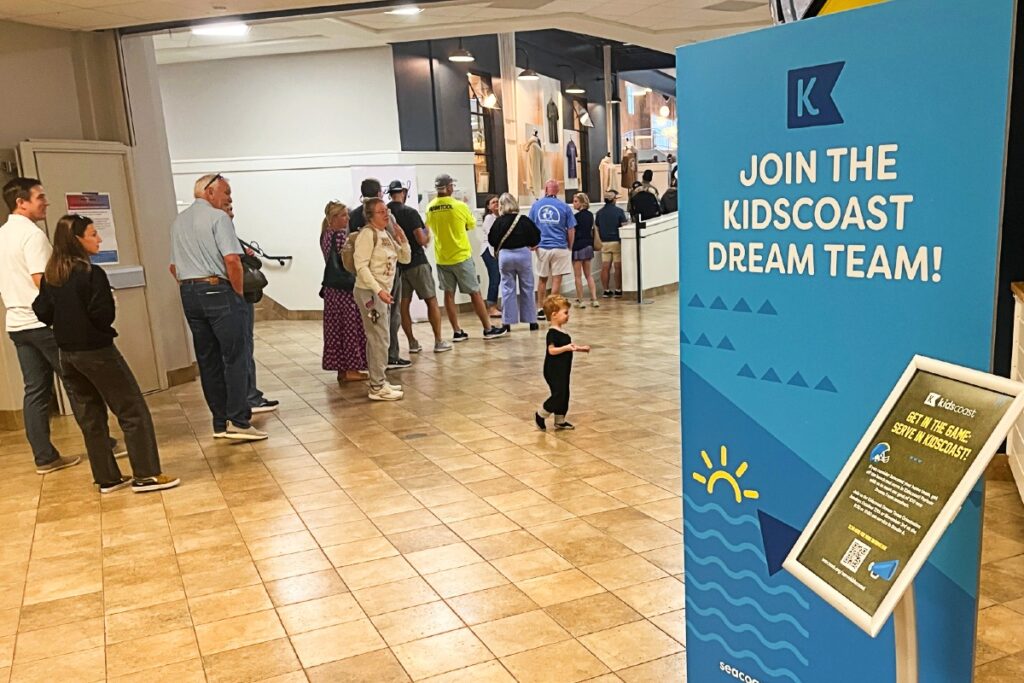
By the Rev. Jeremy Rutledge | Like a growing number of Americans, I voted early in this year’s presidential election. I stood in an hour-long line on a weekday afternoon, happy to see so many others exercising their right to vote.
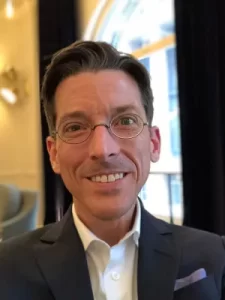
According to the South Carolina Election Commission, early voting has never been more popular. More than 1.5 million South Carolinians cast ballots before November 5. Early voting has now become an essential part of the electoral process; it provides time and space for more of us to participate.
When I voted early, I was impressed with the careful planning and organization of the space. Volunteers and election workers were helpful and kind. The process was seamless from start to finish. There was only one problem: the site for early voting in my area was an evangelical church.
At first blush, this might not seem to be a problem at all. We needed ample parking and a large building, which the church provided. Yet the longer I stood in line and the closer I got to the voting booth, the more uncomfortable I became.
On our way to vote, we moved through the church foyer. Signs advertised various ministries while QR codes invited us to learn more. The line moved slowly past a bookstore selling Bibles and T-shirts with Christian slogans. Finally, we stood beneath a great cross as we waited to present our identification to vote. It all felt more religious than civic.
I wondered as I stood in line, and I have wondered since, what happened to our cherished tradition of separation of church and state? Why was I – a minister – subjected to so many religious messages while I was simply trying to vote? I thought of the rich multicultural tapestry of the country, including beloved friends of many faiths and philosophies. I tried to imagine how a Muslim or Jew might feel in the line. What would a Buddhist think, a Hindu or a humanist?
I don’t know how the decision was made to choose churches as early voting sites in Charleston County, but I do know that it belies a lack of respect for our many cultures and traditions. In a multicultural democracy, we should vote in community centers, civic halls and gymnasiums – all of which have great parking – not sectarian religious spaces. This can be done if we find the will and, more importantly, the ethic to do it.
The ethic behind the separation of church and state is an ethic of ordinary respect. Rather than impose a single tradition or entangle it with government, we create space for every person to follow their own conscience. This includes our religious neighbors, our non-religious neighbors and everyone in between. It also leads to an extraordinarily vibrant cultural landscape. I’m grateful to live in a country where those who are dearest to me are Muslims, Jews, Buddhists, Hindus and humanists, each free to practice their faiths and philosophies as I am free to practice mine. Yet this freedom needs to be safeguarded.
Some of our elected officials now deny our tradition of keeping church and state separate. They have brought religion, specifically evangelical Christianity, into the school board, the public library, the city council and the state legislature. We can see and hear in these efforts a profound lack of respect for others and a menacing form of intolerance. We may remember that the president-elect himself once stood on the deck of the Yorktown in Charleston Harbor and called for a ban on Muslim people.
It all leads me back to the idea that multicultural democracy isn’t something we are meant to simply talk about. It’s something we are meant to practice. A good start would be moving our early voting to places that are respectful of all.
I know this can be done because years ago, living in Texas, I voted early at a community center. There were no crosses on the wall, only children’s artwork.
The Rev. Jeremy Rutledge is senior pastor at Circular Congregational Church in Charleston.
Send us your thoughts
We encourage you to send in your thoughts about policy and politics impacting South Carolina. We’ve gotten some letters in the last few weeks – some positive, others nasty. We print non-defamatory comments, but unless you provide your contact information – name and hometown, plus a phone number used only by us for verification – we can’t publish your thoughts.
- Have a comment? Send your letters or comments to: feedback@statehousereport.com. Make sure to provide your contact details (name, hometown and phone number for verification. Letters are limited to 150 words.
- Send us a mystery picture. If you have a photo that you believe will stump readers, send it along (but make sure to tell us what it is because it may stump us too!) Send to: feedback@statehousereport.com and mark it as a photo submission. Thanks.
ABOUT STATEHOUSE REPORT
Statehouse Report, founded in 2001 as a weekly legislative forecast that informs readers about what is going to happen in South Carolina politics and policy, is provided to you at no charge every Friday.
- Editor and publisher: Andy Brack, 843.670.3996
- Statehouse bureau chief: Jack O’Toole
Donate today
We’re proud to offer Statehouse Report for free. For more than a dozen years, we’ve been the go-to place for insightful independent policy and political news and views in the Palmetto State. And we love it as much as you do.
But now, we can use your help. If you’ve been thinking of contributing to Statehouse Report over the years, now would be a great time to contribute as we deal with the crisis. In advance, thank you.
More
- Mailing address: Send inquiries by mail to: P.O. Box 21942, Charleston, SC 29413
- Subscriptions are free: Click to subscribe.
- We hope you’ll keep receiving the great news and information from Statehouse Report, but if you need to unsubscribe, go to the bottom of the weekly email issue and follow the instructions.
- Read our sister publication: Charleston City Paper (every Friday in print; Every day online)
- © 2024, Statehouse Report, a publication of City Paper Publishing, LLC. All rights reserved.



Dear Andy, Re: Churches and voting sites there.
When I was in Junior High School, if there were an election scheduled, we had the day off. They had the electric voting booths lined up out in front of the main offices. People entered the school at the far end of the elementary school and walked slowly toward the voting site. I seem to remember that they then left by the front door of the school.
Easy Peasy….yes? No one is offended by photos of the Principal, office secretary et alia. It’s warm enough in the cold weather or cool enough in the late springtime. PS it was Crayton Jr. High, Columbia, SC. (I hope it’s still there)